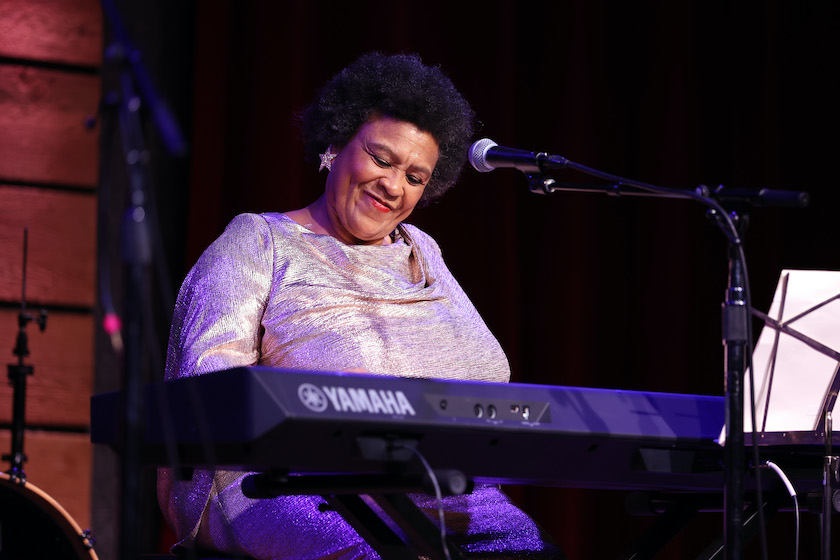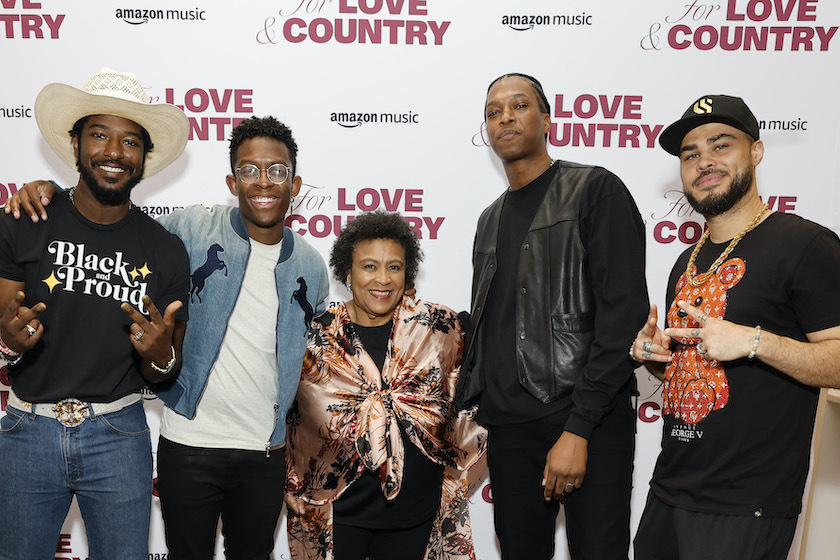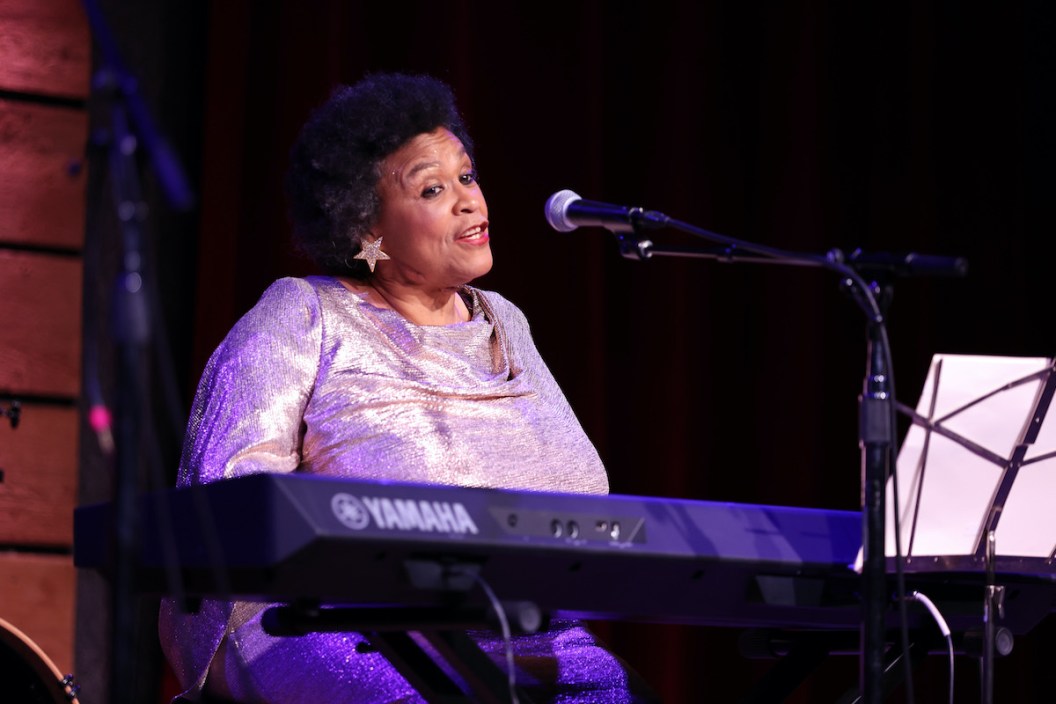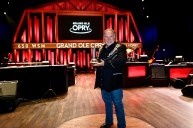A recurring talking point about Black artists' treatment by the country music industry has been Frankie Staton's 42-year fight for representation. The singer-songwriter and pianist moved to Nashville in 1981 from a small North Carolina town, hoping to follow the career paths of Loretta Lynn, Don Williams and other inspirations. Since then, many proverbial doors got slammed in her face, as chronicled in the Amazon documentary For Love & Country. Affirmation for a hard-working, faith-guided entertainer -- but not absolution for the lack of inclusivity that still mars the genre -- came on Feb. 7 when Staton debuted on the Grand Ole Opry stage.
Videos by Wide Open Country
"A lot of people say it was long overdue," Staton told Wide Open Country. "I don't know that it was long overdue because I know how many people want to get on the Grand Ole Opry. There's thousands. I'm not trying to play the Black card and go: 'Oh, they didn't let me on the Grand Ole Opry because I'm Black.' I know a lot of people that came to this city that weren't Black, did not get a break and left and went home and gave up.
"For me, my issue with the whole industry was they tried to talk me out of it, and then they would say, 'Well, it's not about you people'," she continued. "I'm like, 'Okay, I don't even like that.' And they would say 'Why do you want to do this? This is not about you.' I finally told one man to tell God to only give me rhythm & blues and gospel and jazz songs. Tell Him I'm not supposed to write country songs, because I'm not responsible for what runs through my head at 3 in the morning when I'm asleep."

Jason Kempin/Getty Images
Staton's greatness should've been undeniable for years thanks to gigs on Ralph Emery's influential TV series Early Morning Show and at the Gaylord Opryland Hotel & Convention Center. In the latter role, she won over fans from around the globe that were on their way to experience a show at the Opry House, proving that she was talented and marketable enough for country music's most hallowed stage. As anyone familiar with her career can surely tell, the lack of opportunity can't be chalked up to Staton being shy.
"About 20 years ago, when it got down to 10 below zero and there was an ice storm, I called the Grand Ole Opry and I said, 'Hey, let me tell you something. If the grand ladies can't make it tonight, the chocolate cowgirl stands ready. This is Frankie Staton, and I'm just letting you know that I'm on standby to come on out and entertain'," she explained. "They said, 'Yeah, we know who you are. That's not going to happen.'"
The few Nashville power brokers willing to give Staton a shot could not deny her talent. Take for instance Jason Blume, host of BMI's songwriting clinics. Blume loved her songwriting instantly, declaring the six-minute jazz tune "Anaheim" a standard on the spot despite his reputation for being the Simon Cowell of Music Row.
"He took 50 writers in the board room at BMI and literally ripped your songs apart, put them back together, told you where, in his opinion, the holes were and how to strengthen it," Staton said. "I never could get a reservation on the computer. So, I went to BMI at 7 in the morning and said I'm No. 1 because he saved 10 spots for people that could not get a reservation online. In the wintertime, I'd be sitting in my car yelling across the street: 'Hey, hey, I'm Frankie, and I'm No. 1.' They'd say, 'Yes ma'am, yes ma'am.'
"I get in Jason's workshop, and he scared me halfway to death because he was so intense, staring at the lyric sheet, thinking about every syllable, every word, every lyric that was written, every melody, why it was written this way, how it could be better," she continued. "Throwing CDs at people and saying, 'Go home and work on that again. Go home and and write a real song. How many times have I heard this subject?' I said, 'You know what? That man is crazy.' If he gets up and goes to the bathroom, I'm going to take my CD and run away."

Jason Kempin/Getty Images for Amazon Music
Along the way, Staton has gone to bat for other Black country artists. As she put it, "If they were treating me the way they treated me, I knew that other Black people were being treated the same." Examples of this from the '90s include organizing the Bluebird Cafe's Black Country Music Showcases and helping Cleve Francis create the Black Country Music Association. More recently, she's supported the Black Opry and championed others deserving of an Opry debut: namely one of her backup singers on Feb. 7, Valierie Ellis Hawkins.
"I played her for the Opry 25 years ago, and they told me you have to be a good singer," Staton said. "I said, 'You're crazy if you don't hear this. If you don't hear that this is a real country singer, a vintage country singer right here... She'd been compared to Trisha Yearwood.' I knew then it really was a Black thing back then. To have her there with me just really warmed my heart. Then I had to go get Jonelle Mosser. The two of them got together. Lord honey, I thought I had died and gone to Heaven."
During the lead up to her Opry debut, Staton felt anxious despite having played thousands of shows in her 40-plus year career.
"A week before I went out there, I couldn't eat, I couldn't sleep. My nerves were shot. I couldn't even remember my lyrics," she added. "They said, 'You look uncomfortable.' I said, 'I can't remember my lyrics to my own music.' They said, 'We have a teleprompter.' I said, 'What? Where is it at?' They said, 'Right there, and the words are real big!' I walked out on that stage like the little, old woman that I am and glared right at it. You know, once you hear the first line of the song, you got it. It's just my nerves were so shot."
For her big night, Staton invited fellow underdogs, from a shoe-shiner that worked at Opryland to friends made through her hotel residency.
"People that had menial jobs, worked hard jobs, that's who I wanted with me because I worked hard in my life," Staton said.
Others integral to her story listened to the worldwide broadcast from afar.
"[Blume] sent me a message from Hawaii," she explained. "He said, 'I was over here in tears. You did good. The audience, you had great response. I couldn't tell you were nervous.' I sent him [a text] and said, 'It's called a teleprompter.'"




